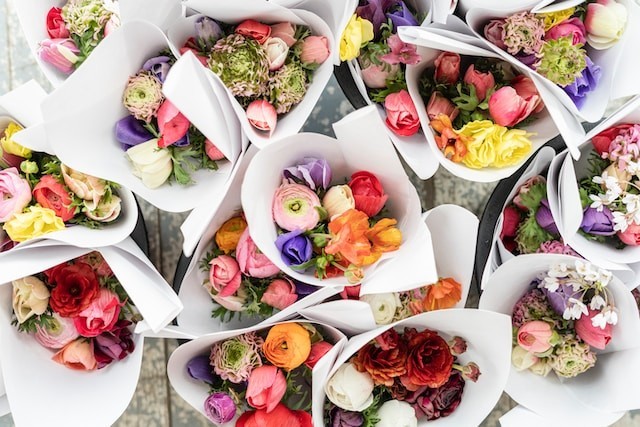Introduction
In the Netherlands, a nation steeped in history and culture, the act of sending flowers is more than just a gesture—it’s an art form that carries its own set of etiquettes and traditions. Whether expressing congratulations, condolences, or love, understanding the nuances of floral gifting in the Netherlands is essential. This article serves as your guide to navigating the intricate world of sending flowers, from appropriate occasions to popular choices, ensuring your floral gift is a heartfelt reflection of cultural understanding.
Understanding Occasions: When to Send Flowers
In the Netherlands, flowers are associated with various milestones and events. For instance, birthdays, anniversaries, and graduations are all wonderful occasions to send blooms that celebrate achievements and joys. Flowers also play a significant role in expressing condolences during times of mourning. Understanding the context of the occasion will guide you in selecting the appropriate flowers and arrangements.

Symbolism Matters: Selecting the Right Flowers
Every flower carries its own symbolism, and the Dutch are well-versed in these meanings. Red roses often signify love and romance, making them a popular choice for anniversaries and romantic gestures. Tulips, the iconic Dutch flower, are associated with happiness and new beginnings, making them versatile options for various occasions. Lilies are often linked to funerals, so they should be chosen with care. Researching the meanings behind flowers will help you convey the intended message with your gift.
A Symphony of Colors: Harmonizing with Cultural Tastes
Color carries immense significance in Dutch culture. When selecting flowers, consider the recipient’s preferences, the occasion, and the cultural context. Bright and vibrant colors are often associated with celebrations, while subdued and pastel tones may be more appropriate for somber events. White flowers, symbolizing purity, are often given as gestures of sympathy. Adapting the color palette to match the cultural sensitivities of the Netherlands will show thoughtfulness and respect.
Arrangements and Presentation: Simplicity and Elegance
Dutch floral arrangements emphasize simplicity and elegance. Bouquets are often clean and structured, reflecting the Dutch love for order and beauty. Avoid overly extravagant arrangements that might be seen as ostentatious. A well-arranged bouquet with a balanced mix of flowers and foliage is the hallmark of a thoughtful gift.
Handwritten Notes: Adding a Personal Touch
Accompanying your floral gift with a handwritten note is customary and greatly appreciated in the Netherlands. Use this opportunity to express your feelings and intentions behind the gift. A sincere, heartfelt note enhances the emotional impact of the flowers and shows that you’ve taken the time to personalize the gesture.

Cultural Sensitivity: Respect for Traditions
The Dutch have a deep respect for their traditions, so when sending flowers, it’s important to be mindful of their customs. For example, sending flowers in even numbers is generally avoided, as even numbers are associated with funerals. Odd numbers are preferred, symbolizing life and growth.
Conclusion
Sending flowers in the Netherlands is more than a casual act—it’s a meaningful exchange laden with cultural significance. By understanding the appropriate occasions, selecting the right flowers, and adhering to Dutch floral gifting customs, you can convey your sentiments effectively and build bridges of understanding through the art of floral gifting. Your thoughtful approach will surely be cherished by both the recipient and the rich cultural heritage of the Netherlands.

